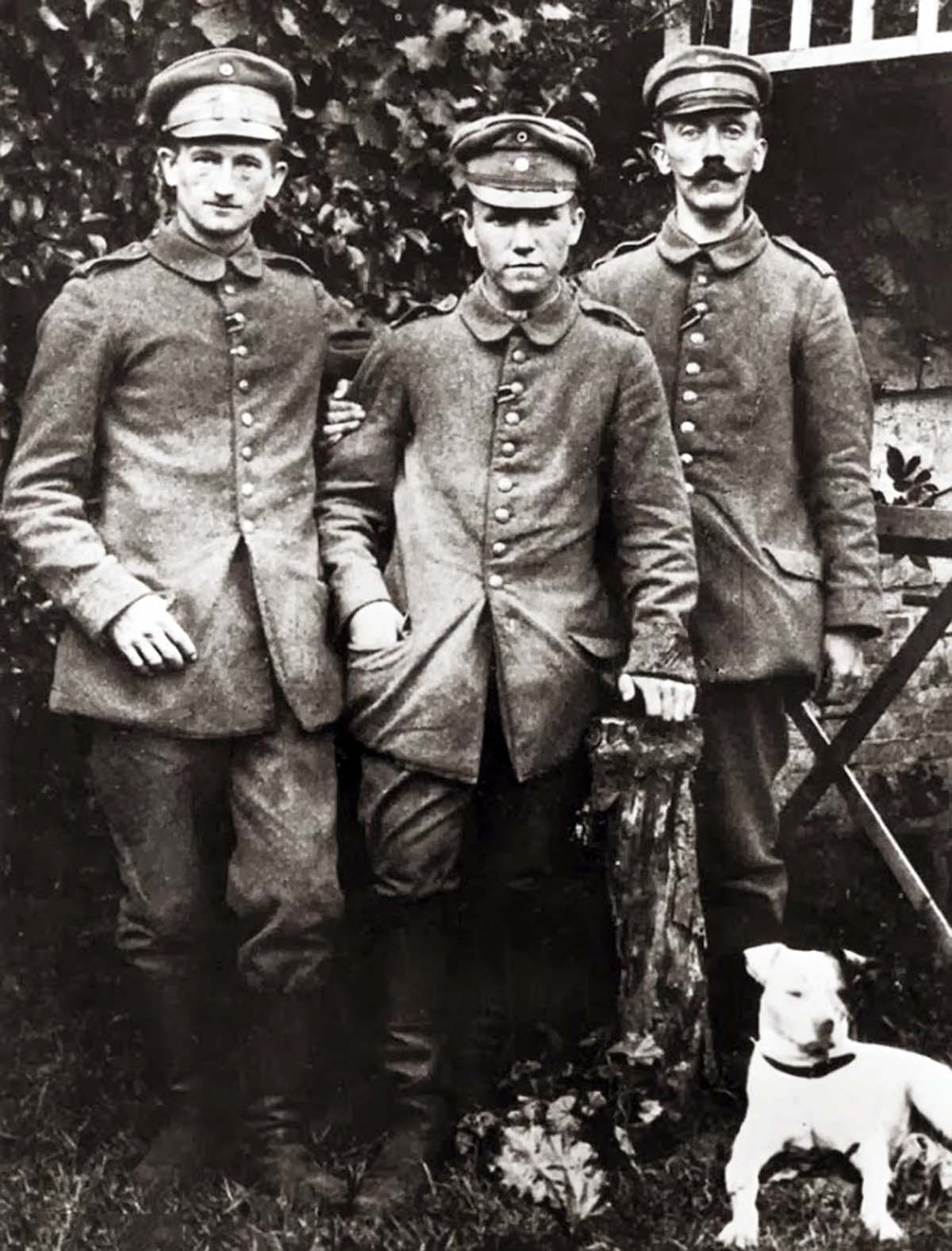Adolf Hitler during his stay in a military hospital, 1918

In October 1918, Hitler and several comrades were temporarily blinded by a British mustard gas attack near Ypres in Belgium. After initial treatment, Hitler was hospitalized in Paswalk.
While there, on 10 November, Hitler learned of Germany's defeat from a clergyman, and – by his own account – received the news he suffered a second bout of blindness.
Hitler was angered by the subsequent Treaty of Versailles, which forced Germany to say that they had started the war, depriving Germany of various territories, annexing the Rhineland, which the Allies had claimed. was occupied, and imposed economically harmful sanctions.
Hitler later wrote: "While I was confined to bed, the idea came to me that I would liberate Germany, that I would make it great. I knew immediately that this would be realized."
After the war Hitler wanted to remain in the army, but this was impossible with the almost complete demilitarization of the armed forces. He returned to Munich for demobilization.


During the war, Hitler served in the 16th Bavarian Reserve Regiment in France and Belgium. He was an infantryman in the First Company during the First Battle of Ypres (October 1914), which is remembered in Germany as Kindermord bei Ypern (Massacre of the Innocents), as about 40,000 men (about three-and-a-half) of the nine newcomers. middle) enlisted infantry divisions were killed in 20 days. Hitler's regiment entered the war with 3,600 men and at the end of it mobilized 611 troops.
The regimental commander was killed and thereafter he became known as the Regimental List in his honour. By December Hitler's own company of 250 had been reduced to 42.
Biographer John Keegan claims that this experience prompted Hitler to part ways and withdraw for the remainder of the war. After the war, Hitler was promoted from Schutz (private) to Gefreiter (lance corporal) and appointed as a regimental message runner.
In early 1915, Hitler adopted a stray dog named Foxl, who was taught tricks and became his favorite companion. Hitler described him as a "proper circus dog".
In August 1917, the List regiment was transferred to a quiet area in Alsace. During the visit, portfolios of sketches and paintings of both Foxl and Hitler were stolen.
Hitler was twice decorated for bravery. He received the relatively common Iron Cross, second class, in 1914, and the Iron Cross, first class, in 1918, an honor rarely bestowed on a Gefreiter. Hitler's First Class Iron Cross was recommended by Hugo Gutmann, assistant to the Jewish List.
According to Weber, this rare award was usually given to people stationed at regimental headquarters, such as Hitler, who had more contact with more senior officers than war soldiers.
Hitler's Iron Cross, 1st Class was awarded after an attack in open combat during which messengers were unavoidable and a day in which the reduced regiment lost 60 killed and 211 wounded.

No comments: